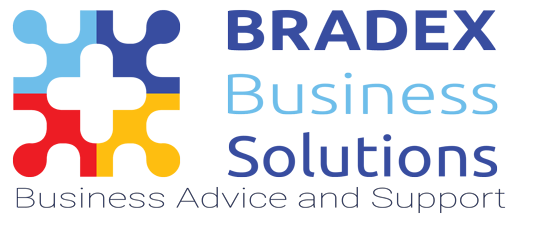As we step into Q2 of 2024, small and medium-sized enterprises (SMEs) find themselves at a pivotal point in corporate governance.
The landscape is evolving rapidly, influenced by technological advancements, societal shifts, and a growing emphasis on sustainability.
For SME directors and business leaders, understanding these trends is not just about compliance; it’s about seizing opportunities to innovate, grow, and sustainably drive their businesses forward.
As a business coach and non-executive director with over three decades of experience across finance, marketing, sales, and operations. I’ve witnessed first-hand the transformative impact that adept governance can have on small businesses.
Let’s explore some key corporate governance trends for 2024 and how they can be navigated successfully.
1. Sustainability and ESG Integration
The drumbeat for sustainability and ESG (Environmental, Social, and Governance) factors has never been louder. Stakeholders, including investors, customers, and employees, are increasingly valuing businesses that commit to sustainable practices and ethical governance. For SMEs, embedding ESG principles into your business strategy could significantly enhance your brand’s value and appeal to a broader audience.
As a business coach, I accentuate to my clients the importance of viewing ESG integration not as a regulatory hurdle but as a strategic asset that can drive innovation and operational efficiency. It’s about making your business not only more appealing to conscious consumers but also more resilient in the face of environmental and social challenges.
2. Digital Transformation and Cybersecurity
The digital revolution continues to reshape the business landscape, offering SMEs unprecedented opportunities for growth and efficiency.
However, with great power comes great responsibility. The rise in digital operations has paralleled an increase in cyber threats, making cybersecurity a crucial component of corporate governance.
Embracing digital transformation while safeguarding your digital assets is a delicate balance. This involves regular cybersecurity assessments, employee training, and a proactive approach to risk management. In my coaching sessions, I work with directors to understand the nuances of digital risks and develop robust strategies to protect their businesses.
3. Diversity and Inclusion
Diversity and inclusion are no longer just buzzwords but integral aspects of modern corporate governance. A diverse board brings a multitude of perspectives, fostering innovative solutions and reflecting the diverse world we live in.
For SMEs, creating a culture that values diversity can enhance decision-making processes and open new market opportunities.
Incorporating diversity and inclusion goes beyond hiring practices; it’s about cultivating an environment where every voice is heard and valued.
This approach not only enriches your company culture but also strengthens your brand’s reputation in the marketplace.
4. Transparency and Reporting
Today’s stakeholders demand transparency. They want to know how a business is run, its financial health, and its impact on the community and environment.
For SMEs, this trend towards greater transparency and detailed reporting can seem daunting. However, it presents a unique opportunity to build trust and loyalty among your stakeholders.
As a non-executive director, I advise businesses on crafting clear, comprehensive reports that not only meet regulatory requirements but also tell the story of the company’s mission, values, and impact.
This transparency is a powerful tool for building long-term relationships with your stakeholders.
5. Regulation and Compliance
The regulatory landscape is constantly evolving, with new laws and standards being introduced to address emerging risks and challenges.
For SMEs, especially those looking to expand internationally, keeping abreast of these changes is critical. Compliance is not just about avoiding penalties; it’s about demonstrating your commitment to lawful and ethical business practices.
In my role with the board, I help directors navigate this complex regulatory environment, ensuring that their businesses are not only compliant but also poised to take advantage of new regulatory developments.
6. Stakeholder Engagement
Finally, the shift towards broader stakeholder engagement marks a significant evolution in corporate governance.
This trend identifies that businesses operate within a wider ecosystem and that engaging with this ecosystem can drive sustainable growth.
For small businesses, engaging with customers, employees, and the community isn’t just about public relations; it’s about building a business that truly understands and meets the needs of its stakeholders.
This engagement can provide invaluable insights, fostering innovation and driving strategic decision-making.
Navigation of Corporate Governance is both a challenge and an opportunity.
For SME directors and business leaders, navigating the corporate governance trends of 2024 is both a challenge and an opportunity.
By embracing sustainability, digital transformation, diversity, transparency, regulatory compliance, and stakeholder engagement, small businesses can not only enhance their governance practices but also position themselves for sustainable growth and success.
As a business coach and independent director, I’m committed to guiding SMEs through these complex trends, providing the insights and support needed to thrive in today’s dynamic business environment.
Let’s delve into how artificial intelligence (AI) fits into the corporate governance landscape and can be leveraged by small businesses in 2024.
AI and Corporate Governance: The Next Frontier
Strategic Decision-Making: AI technologies offer powerful tools for examining vast amounts of data, providing insights that can inform strategic decision-making.

For SMEs, leveraging AI can mean the difference between basing decisions on intuition and making data-driven choices that propel the business forward.
AI can help identify market trends, customer actions, and operational inefficiencies, enabling directors to make informed strategic moves.
Risk Management and Compliance: AI plays a pivotal role in identifying, assessing, and managing risks, especially in the realm of cybersecurity.
With cyber threats becoming more sophisticated, AI-driven security solutions can monitor systems in real time, detect anomalies, and even predict potential breaches before they occur.
Additionally, AI can streamline compliance processes by automating the monitoring of regulatory changes and ensuring that business practices remain in line with current laws and standards.
Enhancing ESG Efforts: AI can significantly boost a company’s ESG initiatives by providing insights into energy consumption, waste management, and supply chain sustainability.
For example, AI algorithms can crunch operational data to recommend ways to reduce energy usage or enhance logistics for lower emissions.
This not only aids in achieving sustainability goals but also in reporting on ESG efforts with greater accuracy and detail.
Customer and Stakeholder Engagement: In the realm of stakeholder engagement, AI technologies like natural language processing (NLP) and machine learning can enhance customer service and personalise interactions, making stakeholders feel more valued and understood.
These technologies can analyse customer feedback across various channels, providing businesses with actionable insights to improve products, services, and overall stakeholder satisfaction.
Operational Efficiency and Innovation: AI can automate routine tasks, freeing up valuable time for strategic thinking and innovation.
For SMEs, this means being able to focus on core business activities while AI handles administrative or operational tasks.
Moreover, AI can drive innovation by identifying new business models, revenue streams, and ways to deliver value to customers.
The Role of Leadership in AI Adoption
While the potential of AI is vast, its successful integration into corporate governance requires thoughtful leadership. Directors and business leaders must understand the ethical considerations, including privacy concerns and the potential for bias in AI algorithms.
They must ensure that AI technologies are implemented responsibly, with transparency and in alignment with the company’s values and goals.
Leaders also play a crucial role in fostering a culture that embraces change and innovation. This involves investing in training and development to equip employees with the skills needed to work alongside AI technologies and to understand the ethical implications of AI.
AI’s role in transforming Corporate Governance
AI is not just a technological tool but a transformative force that can enhance every aspect of corporate governance, from decision-making and risk management to sustainability and stakeholder engagement. For SMEs willing to embrace this technology, AI offers a pathway to more efficient, innovative, and responsible business practices.
As we look towards the future, the integration of AI into corporate governance presents an exciting opportunity for growth and competitive advantage. With the right approach, small businesses can leverage AI to not only meet the challenges of 2024 but to thrive in an increasingly complex and fast-paced business environment.
As your business coach and guide, I am here to help navigate this journey, ensuring that AI is leveraged in a way that aligns with your business values and goals, driving your sustainable success for years to come.

